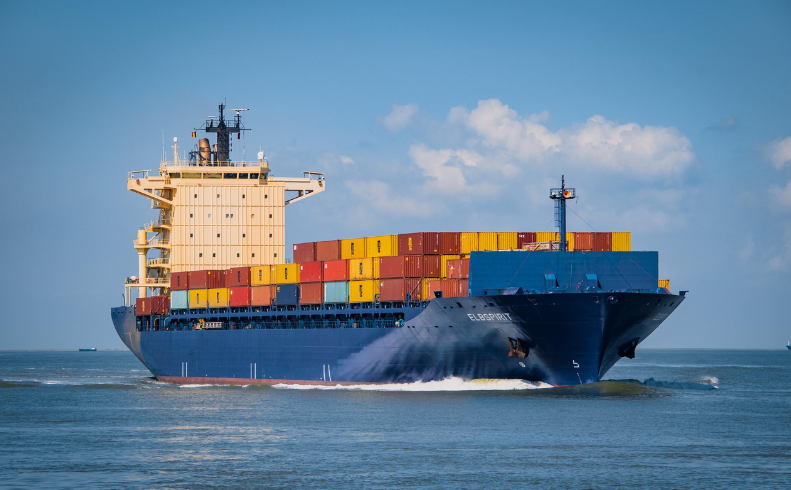Are You a Russian Importer Struggling to Choose the Right Shipping Term?
You're not alone.
Every day, businesses across Russia face the same challenge: FOB, CIF, or DDP — which shipping term gives them the best balance of cost, control, and convenience?
With shifting trade routes, complex customs regulations, and rising logistics costs in 2025, choosing the wrong Incoterm can lead to delays, hidden fees, and unnecessary risks — especially when importing from China or other global suppliers.
But here’s the good news: understanding the differences between FOB, CIF, and DDP can save you time, money, and headaches.
In this article, we’ll break down each term from a Russian importer’s perspective, so you can make the smartest shipping decision for your business — without getting lost in logistics jargon.
What Are Incoterms?
Incoterms (International Commercial Terms) are standardized rules published by the International Chamber of Commerce (ICC). They define the responsibilities of buyers and sellers in international trade, especially regarding:
- Who pays for shipping and insurance
- When the risk of loss transfers from seller to buyer
- Who handles customs clearance and duties
Using the correct Incoterm helps avoid confusion and costly mistakes — especially important for Russian importers navigating complex logistics and customs procedures.
FOB: Free On Board – What It Means for Russian Importers
Definition:
Under FOB, the seller is responsible for the goods until they are loaded onto the ship at the port of shipment. After that, all costs and risks transfer to the buyer.
Pros:
- More control over shipping and logistics
- Potential to negotiate better freight rates
- Avoid hidden seller fees
Cons:
- Buyer must arrange and pay for international shipping and insurance
- Requires knowledge of customs clearance in Russia
- Longer lead times if logistics are not well managed
Best for:
Russian importers who have a trusted logistics partner or want to manage costs and logistics directly.
CIF: Cost, Insurance, and Freight – Pros and Cons
Definition:
With CIF, the seller pays for the cost of goods, freight, and basic insurance to the destination port. However, risk transfers to the buyer once the goods are on the ship.
Pros:
- Seller handles shipping and insurance to the port
- Simplified process for the buyer
- Good for new importers or small orders
Cons:
- Seller may use expensive or unreliable freight partners
- No control over shipping timelines
- Not responsible for customs clearance or final delivery in Russia
Best for:
Russian importers who want a low-effort solution for small orders or sample shipments.
DDP: Delivered Duty Paid – Full Responsibility on the Seller
Definition:
Under DDP, the seller is responsible for everything — from production to final delivery at the buyer’s door. This includes shipping, insurance, customs clearance, and payment of all duties and taxes.
Pros:
- Buyer receives goods with no additional effort or cost
- Ideal for time-sensitive deliveries
- Simplifies import logistics for Russian businesses
Cons:
- Sellers may charge significantly higher prices to cover risks
- Limited transparency on shipping and customs costs
- Risk of overpayment or hidden fees
Best for:
Russian importers who want a hassle-free delivery and are willing to pay a premium for convenience.
FOB vs. CIF vs. DDP: A Quick Comparison
| Term |
Seller Responsibility |
Buyer Responsibility |
Risk Transfer |
Best For |
| FOB |
Up to loading on ship |
Shipping, insurance, customs, delivery |
On board the ship |
Experienced importers |
| CIF |
Goods + shipping + insurance |
Customs, delivery |
On board the ship |
Small orders or new importers |
| DDP |
Everything (shipping, customs, duties, delivery) |
Nothing |
At final delivery |
Hassle-free delivery |
Which Term Is Best for Russian Importers?
In 2025, many Russian importers are opting for FOB or DDP, depending on their experience and business needs.
For experienced importers: FOB is often the most cost-effective choice, giving you control over logistics and allowing you to work with trusted freight forwarders in Russia.
For new or small-scale importers: DDP can simplify the process, especially if you're unfamiliar with customs regulations or don’t want to manage logistics directly.
However, always verify the seller’s reliability when choosing DDP — some may inflate prices to cover their risks.
FAQs
Q: What is the cheapest Incoterm for Russian importers?
A: FOB is usually the cheapest if you have a good logistics partner, as it avoids seller markups on shipping.
Q: What is the safest Incoterm for Russian buyers?
A: DDP is the safest in terms of risk, as the seller handles everything — but it can be more expensive.
Q: Do I need a customs broker for FOB shipments in Russia?
A: Yes, you’ll need a customs broker or logistics partner to handle import clearance and documentation.
Q: Can I negotiate Incoterms with Chinese suppliers?
A: Absolutely. Many suppliers are open to working with FOB, CIF, or DDP, depending on your order size and relationship.
Are you a Russian importer struggling with shipping terms and customs clearance?
Let Market Union help you navigate the complexities of international trade — from supplier selection to logistics and customs support.
Contact us today to get a free shipping term comparison guide or to schedule a consultation with our sourcing experts.
 Women Activewear
Women Activewear
 Men Activewear
Men Activewear
 Men Outdoor Apparel
Men Outdoor Apparel
 Women Outdoor Apparel
Women Outdoor Apparel
 Team Sports
Team Sports
 Sports Shaper & Sports Safety
Sports Shaper & Sports Safety
 Camping & Hiking
Camping & Hiking
 Boxing Fighting & Dance Gymnastics
Boxing Fighting & Dance Gymnastics
 Game Room & Backyard
Game Room & Backyard
 Swimming & Beach
Swimming & Beach
 Sports & Outdoor Accessories
Sports & Outdoor Accessories
 Cycling
Cycling
 Winter Sports
Winter Sports
 Racquet Sports
Racquet Sports
 Water Sports
Water Sports
 Hunting
Hunting
 Fitness
Fitness
 Fishing
Fishing












































